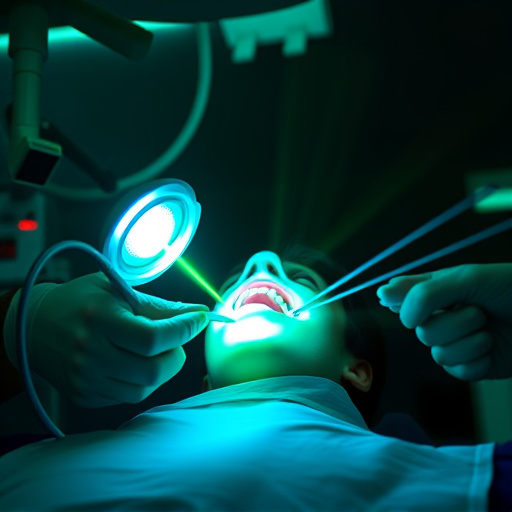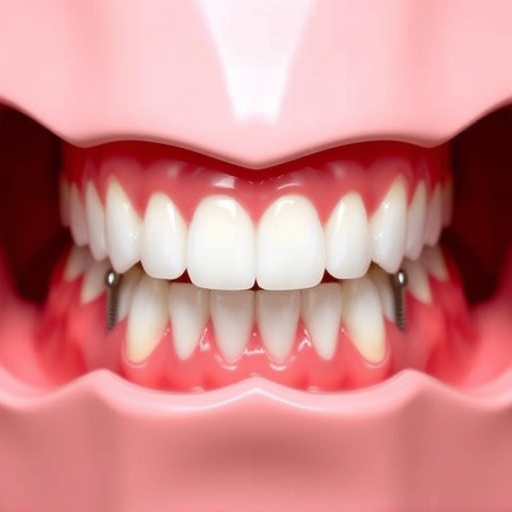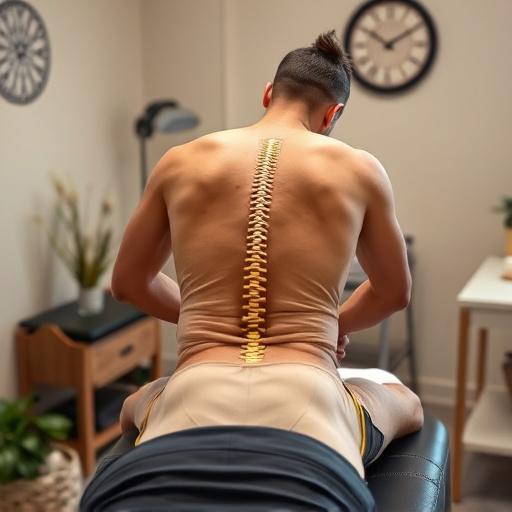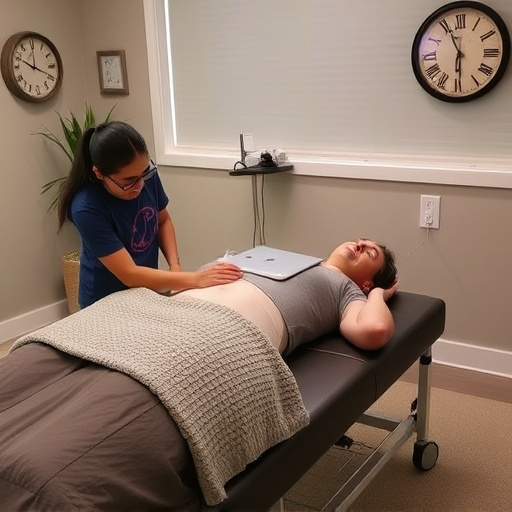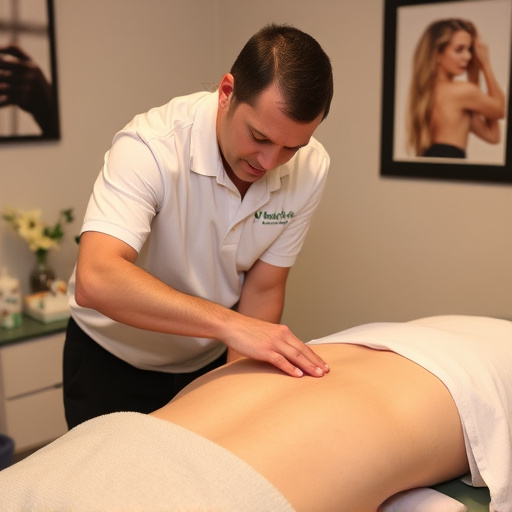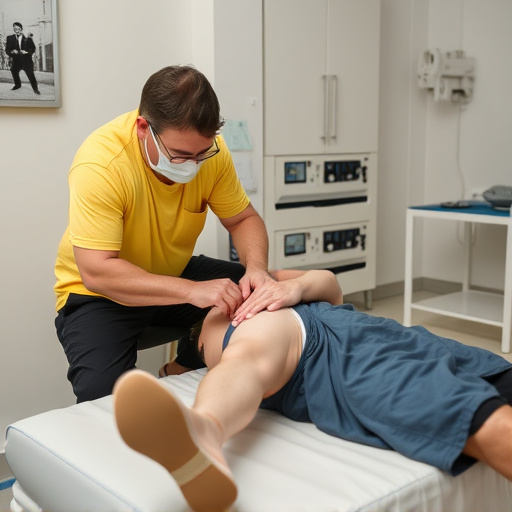In recent years, military medicine has shifted towards holistic therapies as integral parts of military injury treatment, recognizing the interconnectedness of mind, body, and spirit in service members' recovery. While traditional Western medicine dominates, growing demand for comprehensive healing has led to a reevaluation of alternative therapeutic methods like shockwave therapy, tailored exercises, yoga, and meditation. These holistic approaches are seen as valuable tools to accelerate recovery, promote resilience, and cater to diverse patient needs, integrating evidence-based treatments with ancient wisdom to enhance care effectiveness and improve long-term outcomes for service members recovering from combat-related injuries.
Holistic therapies are increasingly recognized as valuable tools in military injury treatment. This shift reflects a growing understanding of the complex interplay between physical and emotional well-being, especially for service members facing trauma. From mindfulness practices to natural healing methods, these approaches aim to address not just symptoms but the underlying causes of distress. By integrating holistic practices into rehabilitation, military healthcare providers are offering a more comprehensive and nurturing path to recovery, tailored to each individual’s unique needs.
- The Rise of Holistic Therapies in Military Medicine
- Benefits and Applications: Addressing Physical and Emotional Trauma
- Integrating Holistic Practices: A New Approach to Military Injury Rehabilitation
The Rise of Holistic Therapies in Military Medicine
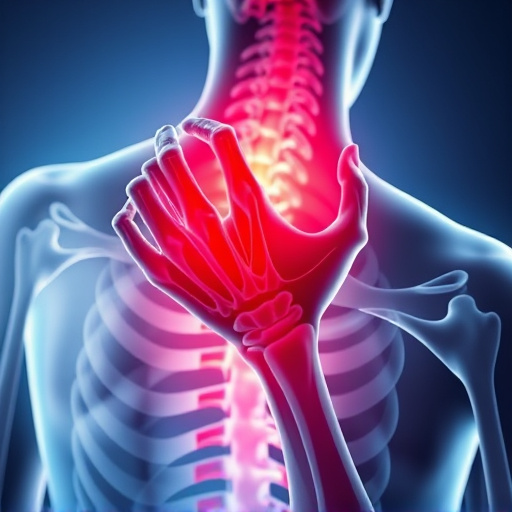
In recent years, there’s been a noticeable shift within military medicine towards embracing holistic therapies as integral components of military injury treatment. This approach recognizes the interconnectedness of mind, body, and spirit in an individual’s recovery process, particularly for service members who often face unique challenges upon returning from deployment. Traditional Western medicine practices have long dominated military healthcare; however, the growing demand for comprehensive healing has prompted a reevaluation of alternative therapeutic methods. Holistic therapies offer a multifaceted approach to military injury treatment, addressing not only physical injuries but also psychological and emotional well-being.
The integration of holistic practices like shockwave therapy, therapeutic exercises tailored to individual needs, and mind-body interventions such as yoga and meditation is gaining traction. These therapies are seen as valuable tools for accelerating sports injury recovery and promoting overall resilience in military personnel. By combining evidence-based treatments with ancient wisdom, military healthcare providers aim to enhance the effectiveness of care, cater to diverse patient needs, and ultimately improve long-term outcomes for those recovering from combat-related injuries.
Benefits and Applications: Addressing Physical and Emotional Trauma

Holistic therapies are increasingly recognized as valuable tools in military injury treatment, offering a wide range of benefits for service members dealing with physical and emotional trauma. These therapies focus on addressing the interconnectedness of the mind and body, which is particularly relevant when treating complex injuries often sustained during active duty.
One such therapy gaining traction is shockwave therapy, known for its non-invasive approach to healing. It has shown promising results in managing soft tissue injuries common among military personnel, offering a pain-relieving alternative with minimal side effects. Beyond physical trauma, holistic treatments also target emotional scars, providing soldiers with effective coping mechanisms and improved mental resilience. By integrating these therapeutic methods into military healthcare, service members can receive comprehensive care that not only heals their bodies but also nurtures their overall well-being.
Integrating Holistic Practices: A New Approach to Military Injury Rehabilitation
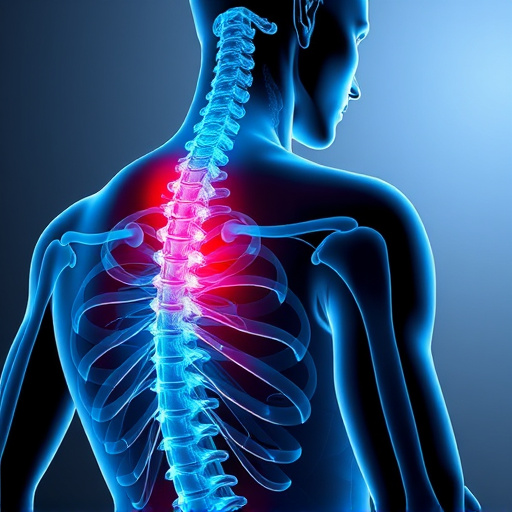
Integrating holistic practices into military injury rehabilitation offers a promising new approach to healing and recovery for service members facing physical and psychological challenges. This shift towards a more comprehensive, whole-body treatment model recognizes that military injuries often extend beyond the immediate physical trauma. Many service members return with invisible wounds such as PTSD, depression, anxiety, and chronic pain, which require specialized care. Holistic therapies, including chiropractic treatment, massage therapy, yoga, meditation, and mind-body interventions, provide non-invasive treatment options tailored to address these complex needs.
By incorporating these practices, rehabilitation programs can offer more personalized and effective care for military injury treatment. Chiropractic adjustments, for example, can alleviate neck pain relief and improve overall spinal health, while massage therapy reduces muscle tension and promotes relaxation. Mind-body practices like yoga and meditation enhance mental clarity, stress reduction, and emotional resilience—crucial components in the healing process. This integrated approach ensures that service members receive comprehensive support, fostering both physical and psychological well-being as they navigate their path to recovery.
Holistic therapies are increasingly recognized as valuable tools in military injury treatment, offering a multifaceted approach to rehabilitation. By addressing both physical and emotional trauma, these practices provide soldiers with comprehensive care that enhances their journey towards recovery. Integrating holistic methods into military medicine represents a significant shift, promising improved outcomes for service members facing the challenges of injury and trauma. This new approach not only complements traditional treatments but also empowers individuals to heal on a deeper level, fostering resilience and overall well-being.


